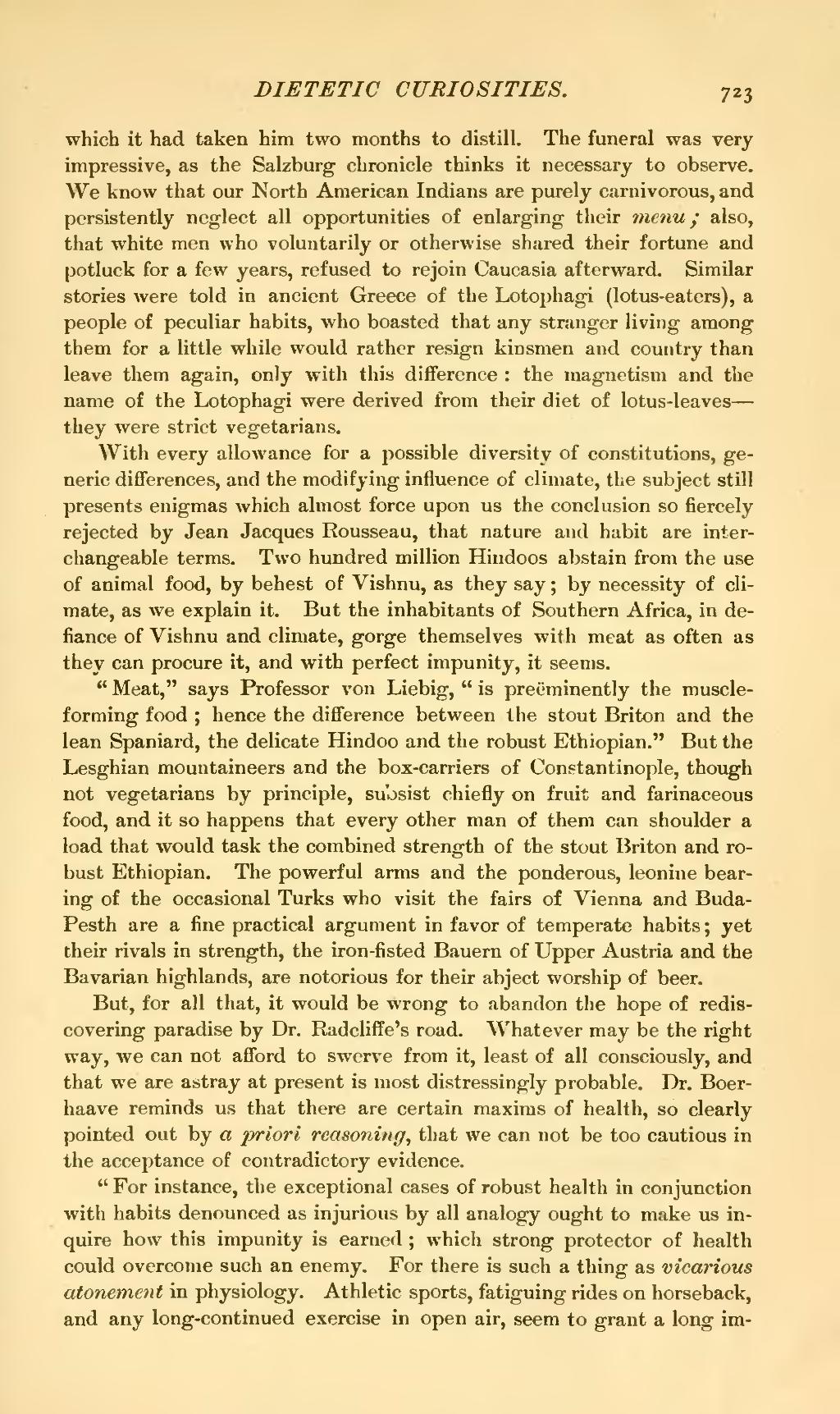which it had taken him two months to distill. The funeral was very impressive, as the Salzburg chronicle thinks it necessary to observe. We know that our North American Indians are purely carnivorous, and persistently neglect all opportunities of enlarging their menu; also, that white men who voluntarily or otherwise shared their fortune and potluck for a few years, refused to rejoin Caucasia afterward. Similar stories were told in ancient Greece of the Lotophagi (lotus-eaters), a people of peculiar habits, who boasted that any stranger living among them for a little while would rather resign kinsmen and country than leave them again, only with this difference: the magnetism and the name of the Lotophagi were derived from their diet of lotus-leaves—they were strict vegetarians.
With every allowance for a possible diversity of constitutions, generic differences, and the modifying influence of climate, the subject still presents enigmas which almost force upon us the conclusion so fiercely rejected by Jean Jacques Rousseau, that nature and habit are interchangeable terms. Two hundred million Hindoos abstain from the use of animal food, by behest of Vishnu, as they say; by necessity of climate, as we explain it. But the inhabitants of Southern Africa, in defiance of Vishnu and climate, gorge themselves with meat as often as they can procure it, and with perfect impunity, it seems.
"Meat," says Professor von Liebig, "is preëminently the muscle forming food; hence the difference between the stout Briton and the lean Spaniard, the delicate Hindoo and the robust Ethiopian." But the Lesghian mountaineers and the box-carriers of Constantinople, though not vegetarians by principle, subsist chiefly on fruit and farinaceous food, and it so happens that every other man of them can shoulder a load that would task the combined strength of the stout Briton and robust Ethiopian. The powerful arms and the ponderous, leonine bearing of the occasional Turks who visit the fairs of Vienna and Buda-Pesth are a fine practical argument in favor of temperate habits; yet their rivals in strength, the iron-fisted Bauern of Upper Austria and the Bavarian highlands, are notorious for their abject worship of beer.
But, for all that, it would be wrong to abandon the hope of rediscovering paradise by Dr. Radcliffe's road. Whatever may be the right way, we can not afford to swerve from it, least of all consciously, and that we are astray at present is most distressingly probable. Dr. Boerhaave reminds us that there are certain maxims of health, so clearly pointed out by a priori reasoning, that we can not be too cautious in the acceptance of contradictory evidence.
"For instance, the exceptional cases of robust health in conjunction with habits denounced as injurious by all analogy ought to make us inquire how this impunity is earned; which strong protector of health could overcome such an enemy. For there is such a thing as vicarious atonement in physiology. Athletic sports, fatiguing rides on horseback, and any long-continued exercise in open air, seem to grant a long im-

